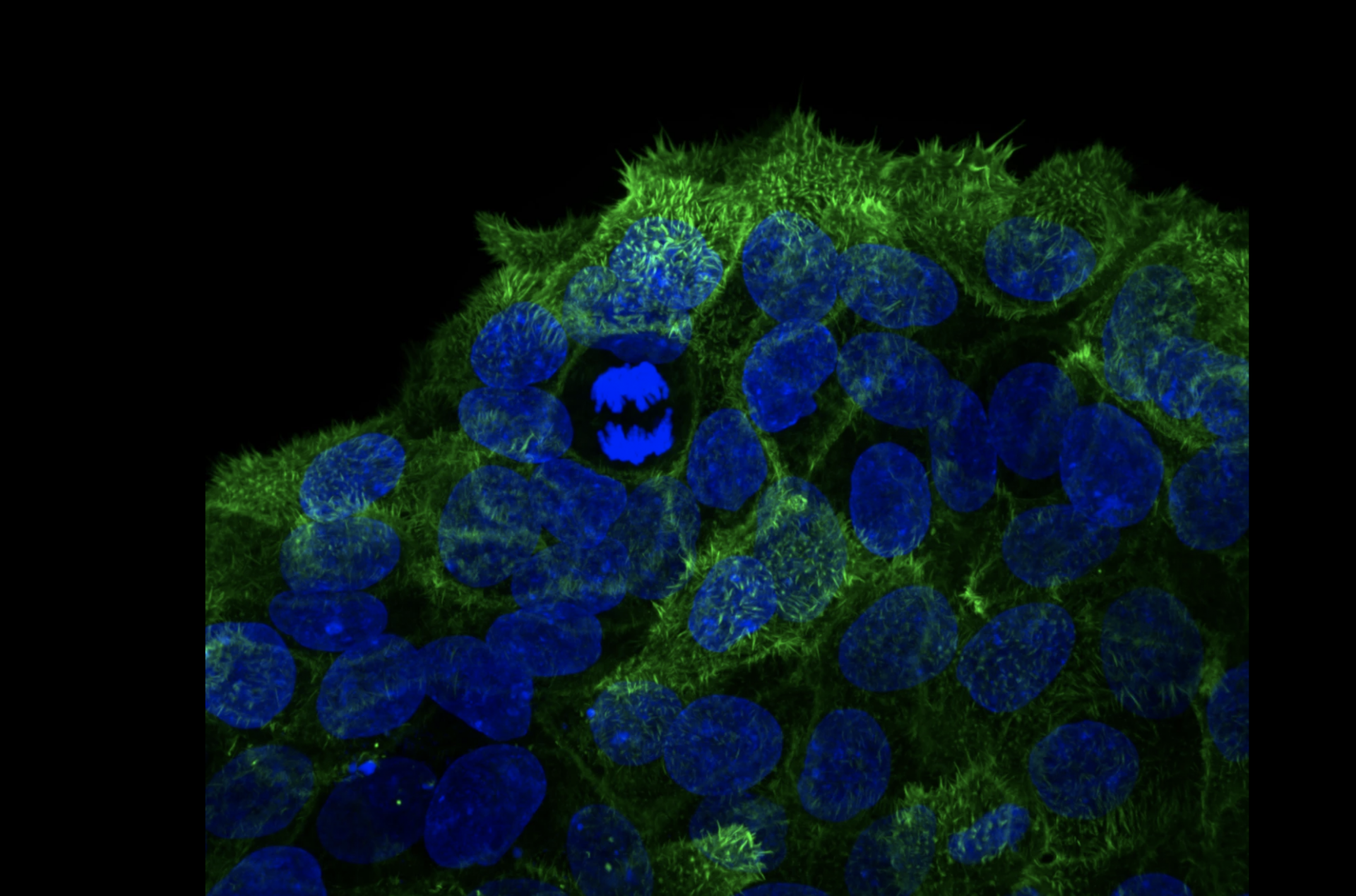Research from the School of Biosciences and the University of Manchester has uncovered an essential mechanism coordinating the processes of cell division and adhesion within humans. This discovery has profound potential for advancing understanding of cell adhesion signalling in cancerous tumour progression and metastasis.
The research, published in the Journal of Biological Chemistry, identifies the long sought link within the cell cycle between the mechanism for cell division, the proliferation that enables all living organisms to function and regenerate, and the cell adhesion that holds them in the correct position within the organism’s structure.
For cell division to occur inside humans, the cell must release its adhesions to the surroundings at the exact moment the cell starts to divide. This synchronisation of the cell adhesion and the cell cycle is critical for the correct functioning of cells in tissues and to prevent uncontrolled cell division in processes such as cancer.
Researchers found that CDK1, the master regulator of the cell cycle binds directly to, and modifies, the core protein talin that is essential to the process of cell adhesion. This interaction represents a coupling of the cell proliferation and adhesion processes. This indicates a unifying mechanism by which the processes of cell division and adhesion are controlled.
Discovering the initial mechanism of this vital process in the tissues of humans is the first-step in a new branch of understanding health issues relating to the cell cycle, including cancerous tumours.
Dr Ben Goult, Reader in Biochemistry at the University of Kent and a Principal Investigator of the paper said: ‘The potential of this discovery is huge as it provides a new understanding of how cell division is coordinated within the confines of a complex multicellular organism. Cell division needs to be tightly coupled to the cell adhesion to allow our cells to divide without disrupting the integrity of our tissues and organs. This research is vital in our understanding of other cellular diseases and of cancer’s ability to spread within the human body.’
The paper, ‘Talin mechanosensitivity is modulated by a direct interaction with cyclin-dependent kinase-1’, is published in the Journal of Biological Chemistry (University of Kent – Dr Rosemarie E.Gough, Dr Benjamin T.Goult; University of Manchester – Dr Matthew C.Jones, Dr Thomas Zacharchenko, Dr Jonathan D.Humphries, Prof Martin J.Humphries; Cancer Research UK Manchester Institute – Dr Claus Jørgensen; National University of Singapore – Dr Shimin Le, Dr Miao Yu, Prof Jie Yan; Åbo Akademi University – Dr Guillaume Jacquemet; University of Leeds – Dr Ste P.Muench).
This research was funded by the Biotechnology and Biological Sciences Research Council, the Human Frontiers Science Program and Cancer Research UK.
URL: https://www.sciencedirect.com/science/article/pii/S0021925821006359
DOI: 10.1016/j.jbc.2021.100837

